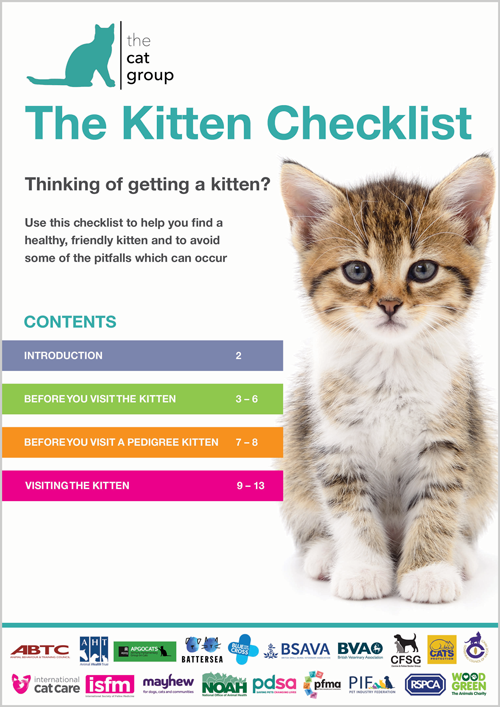
A Comprehensive Guide to Nurturing Baby Cats: Essential Care and Development
Introduction
Welcoming a baby cat into your home is an incredibly rewarding experience, filled with joy and responsibility. These tiny, helpless creatures rely on their human caregivers for survival and well-being. Understanding their unique needs and providing them with proper care is crucial for their healthy development and long-term happiness. This comprehensive guide will delve into every aspect of baby cat care, empowering you to become a nurturing and informed guardian.
Feeding
Nursing:
- For the first few weeks of life, baby cats rely exclusively on their mother’s milk for nourishment. If the mother is unavailable, bottle-feeding with kitten-specific formula is essential.
Bottle-Feeding:
- Use a specially designed kitten bottle with a soft nipple.
- Warm the formula to body temperature (98-100°F).
- Hold the kitten upright and support its head and neck.
- Feed every 2-3 hours, gradually increasing the volume as the kitten grows.
Weaning:
- Around 4-6 weeks of age, kittens begin to show interest in solid food.
- Start by introducing a small amount of kitten food moistened with water.
- Gradually increase the amount of solid food and reduce the formula until the kitten is fully weaned by 8-10 weeks.
Nutrition:
- Kitten food should be high in protein and calories to support their rapid growth.
- Avoid giving adult cat food, as it may not meet their nutritional needs.
- Provide fresh water at all times.
Health and Hygiene
Vaccinations:
- Vaccinations are essential to protect baby cats from potentially fatal diseases.
- The first set of vaccinations is typically given at 6-8 weeks of age.
- Follow your veterinarian’s recommendations for a complete vaccination schedule.
Deworming:
- Kittens are often born with intestinal parasites.
- Deworming is necessary to eliminate these parasites and prevent health problems.
- Your veterinarian will recommend an appropriate deworming schedule.
Grooming:
- Baby cats need regular grooming to maintain their hygiene and prevent matting.
- Use a soft brush or comb to remove loose hair and dirt.
- Clean their ears with a cotton ball dipped in warm water.
- Trim their nails if they become too long.
Litter Box Training:
- Start litter box training as soon as the kitten is old enough to walk.
- Place the litter box in a quiet, easily accessible location.
- Use kitten-specific litter that is soft and non-clumping.
- Show the kitten the litter box and encourage them to use it.
Socialization
Handling:
- Handle baby cats gently and frequently to socialize them.
- Pet them, talk to them, and play with them.
- Avoid rough handling or loud noises.
Play:
- Play is essential for a kitten’s physical and mental development.
- Provide a variety of toys, such as balls, strings, and interactive puzzles.
- Engage in interactive play sessions to stimulate their hunting instincts.
Interaction with Other Animals:
- If you have other pets, introduce them to the kitten gradually and under supervision.
- Monitor their interactions to ensure everyone is comfortable and safe.
Environment
Temperature:
- Baby cats are unable to regulate their body temperature effectively.
- Provide a warm and draft-free environment, especially during the first few weeks of life.
- Use a heating pad or warm blanket if necessary.
Safety:
- Baby cats are curious and can get into trouble easily.
- Secure any potential hazards, such as electrical cords, poisonous plants, and small objects.
- Supervise them closely when they are exploring.
Sleeping:
- Kittens sleep a lot, especially during the first few weeks.
- Provide a cozy and safe sleeping area with soft bedding.
- Avoid disturbing them while they are sleeping.
Special Considerations
Orphaned Kittens:
- If you find an orphaned kitten, seek professional help immediately.
- Keep the kitten warm and provide it with kitten-specific formula.
- Contact a veterinarian or animal shelter for guidance and support.
Sick Kittens:
- If your kitten shows any signs of illness, such as lethargy, vomiting, or diarrhea, seek veterinary attention promptly.
- Early diagnosis and treatment are crucial for their recovery.
Long-Term Care
Spaying or Neutering:
- Spaying or neutering your kitten is recommended to prevent unwanted litters and certain health problems.
- The optimal age for this procedure is around 6 months.
Dental Care:
- Start brushing your kitten’s teeth as early as possible to prevent dental disease.
- Use a soft toothbrush and kitten-specific toothpaste.
Regular Check-Ups:
- Schedule regular veterinary check-ups to monitor your kitten’s health and well-being.
- These check-ups include vaccinations, deworming, and physical examinations.
Conclusion
Caring for a baby cat is a rewarding and fulfilling experience that requires dedication and understanding. By providing them with proper nutrition, health care, socialization, and a safe environment, you can nurture their growth and development into healthy and happy adult cats. Remember to seek professional guidance whenever necessary and enjoy the countless moments of joy and companionship that these adorable creatures bring into your life.
